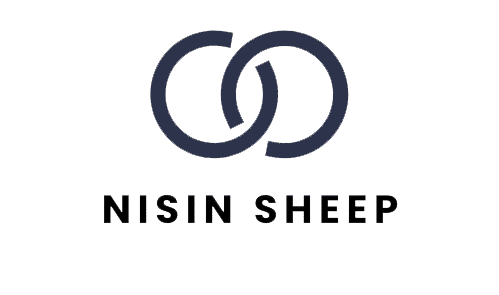We live in an age of curated highlight reels and public-facing perfection, yet beneath the glossy surface, a pervasive sense of anxiety, exhaustion, and existential weight seems to be the true universal experience. We are inundated with messages about “self-care,” “mindfulness,” and “resilience,” often commodified into apps, subscriptions, and quick fixes. But what if the antidote to this modern malaise isn’t found in something new, but in something ancient? What if it lies not in adding another task to our to-do list, but in reclaiming a fundamental orientation toward life itself?
This is where the concept of Levantam offers a profound and timely wisdom.
Levantam (from the Latin levo, meaning to lift, raise, or lighten) is more than a word; it is a philosophical and practical framework for living. It is the conscious, disciplined practice of rising—not just from bed, but from adversity, from mediocrity, from despair, and from the gravitational pull of pettiness and fear. It is the art of lightening one’s own burden and the burdens of others through purpose, grace, and intentional action. In a world that often feels like it is collapsing, Levantam is the personal and collective decision to build, to elevate, and to ascend.
The Two Pillars of Levantam: Ascent and Lightness
The philosophy of Levantam rests on two interconnected pillars, each giving meaning to the other.
1. Ascent (The Act of Rising):
This is the most literal interpretation. Ascent is the commitment to continuous improvement, to reaching for a higher version of oneself and one’s circumstances. It is not about a relentless, grinding hustle culture that leads to burnout. Rather, it is a purposeful climb.
- Intellectual Ascent: The commitment to lifelong learning, to challenging one’s own assumptions, and to seeking truth over comfort. It is reading the difficult book, engaging with opposing viewpoints, and expanding the boundaries of your understanding.
- Moral Ascent: The daily effort to be more compassionate, more honest, and more courageous than you were the day before. It is choosing integrity when cutting corners is easier, offering kindness when met with hostility, and standing for justice when silence is safer.
- Creative Ascent: The drive to create, build, and contribute something of value to the world, however small. It is the gardener tending their plot, the engineer solving a problem, the parent nurturing a child, the artist making sense of chaos through beauty.
2. Lightness (The State of Being):
The second pillar, lightness, is what makes the ascent sustainable and graceful. It is the counterbalance to the weight of the climb. Lightness is not frivolity or avoidance; it is the cultivation of an inner state that is unburdened by unnecessary baggage.
- Lightness of Spirit: The ability to find joy, humour, and wonder even amidst struggle. It is the refusal to be permanently defeated or cynically hardened by life’s difficulties. It is the laughter that breaks tension, the gratitude that dispels entitlement, and the hope that persists in the dark.
- Lightness of Possession: Freeing oneself from the tyranny of material accumulation. It is the understanding that possessions often possess the possessor, creating clutter, debt, and anxiety. Levantam encourages simplicity and generosity, lightening the physical and psychological load.
- Lightness of Ego: Perhaps the most crucial element. This is the release of the obsessive need to be right, to be seen, to be validated, and to be superior. It is the humility to admit error, the confidence that doesn’t require external praise, and the grace that allows others to shine.
These two pillars are in a constant dance. Ascent without lightness leads to a grim, joyless striving that eventually collapses under its own weight. Lightness without ascent leads to a passive, frivolous existence devoid of impact and purpose. True Levantam is the synthesis: rising with a light heart and a clear purpose.
The Daily Practice: How to Cultivate Levantam
Levantam is not a passive state to be achieved; it is an active practice to be woven into the fabric of daily life. It begins the moment the day does.
The First Moment of Consciousness:
The practice of Levantam starts not with grabbing your phone, but with a conscious choice in the first fragile moments of wakefulness. Before the world’s demands crash in, you have a micro-second of agency. Will you hit snooze and succumb to the gravitational pull of the mattress, or will you enact the first, most fundamental act of ascent: rising? This initial physical act sets a psychological precedent for the day. It is a small but powerful declaration: I choose to engage with the world.
Curating Your Inputs:
We do not rise in a vacuum. Our minds are environments, and we are constantly furnishing them with information, images, and ideas. Levantam involves ruthlessly curating these inputs. This means:
- Replacing Complaint with Construction: Limit exposure to endless cycles of outrage and complaint (especially of the performative, online variety) and seek out content that is constructive, solution-oriented, and uplifting.
- Seeking Wisdom over Noise: Choose a few minutes of profound writing from philosophy, poetry, or scripture over mindless scrolling. Feed your mind with fuel for ascent, not junk food for anxiety.
- The Music of Levantam: Be intentional with sound. The music you listen to, the podcasts you consume, even the tone of voice you use with yourself—does it weigh you down or lighten you up?
The Discipline of Action:
Purposeful action is the engine of ascent. Procrastination is the weight of tomorrow’s burden added to today. Levantam is built through small, disciplined actions:
- Tackling the Difficult First: Do the thing you are most avoiding. Each small task completed is a minor ascent, building momentum and confidence.
- Finishing What You Start: See projects through to completion. An unfinished project is psychic weight; a finished one is a foundation for the next ascent.
- Embracing Physicality: The body is not separate from the mind. Exercise, yoga, a walk in nature—these are not just about health; they are literal acts of lifting weight, of raising your heart rate, of physically enacting the principle of ascent. They produce endorphins, the biochemical embodiment of lightness.
The Grace of Release:
Lightness is cultivated through intentional release.
- Forgiveness: Letting go of past grudges is perhaps the heaviest weight you can put down. Forgiveness is not condoning a wrong; it is refusing to let it occupy rent-free space in your mind any longer.
- Decluttering: A physical cleanse of your space is a powerful metaphor and practice for internal lightness. Donate what you don’t need. Create space for clarity and peace.
- Digital Sabbaths: Regularly disconnecting from the digital world is a modern necessity for lightness. It is a reclaiming of your attention and a respite from the constant pressure to perform and consume.
Levantam in the Face of Adversity
This is where the philosophy is tested. It is easy to be “light” when life is easy. The true power of Levantam is revealed in struggle. When faced with failure, loss, or grief, ascent does not mean denying pain or pretending everything is fine. That is weight, not lightness.
The Levantam approach to adversity is to allow yourself to fully feel the weight of the blow—to grieve, to be angry, to be sad. This is honesty, which is itself a form of lightness (as opposed to the heaviness of repression). Then, from that place of acceptance, you ask the central question of ascent: “Now that this has happened, how do I rise?”
It might be rising with a new understanding, with a deeper compassion for others who suffer, or with a fierce determination to prevent others from facing the same pain. The ascent after a fall is often slower and more deliberate, but it is also more meaningful. The lightness comes not from the absence of the scar, but from the knowledge that you carried the weight and found a way to move forward with purpose.
A Collective Call to Rise
While Levantam is deeply personal, its potential is ultimately collective. We are not rising alone. We are part of a human ecosystem. A society engaged in Levantam is one where individuals are focused on lifting themselves in order to lift others. It replaces the crab-in-a-bucket mentality (pulling down anyone who tries to rise) with a ladder mentality (holding the ladder steady for the next person).
This manifests in mentorship, in generous collaboration, in communities that support the ascent of all their members. It is the understanding that my lightness is not diminished by sharing it with you; it is amplified. Your ascent does not threaten mine; it creates a current that makes my own ascent easier.
In an era of deep divisions, Levantam offers a unifying call. It is not a call to a specific political ideology or religious dogma, but to a shared human orientation: a commitment to rise above pettiness, to lighten the loads we all carry, and to build a world that is, quite literally, more elevated.
The invitation of Levantam is extended every morning. The alarm clock rings. The sun rises. The choice, as it always has been, is yours. Will you succumb to the weight, or will you rise?

